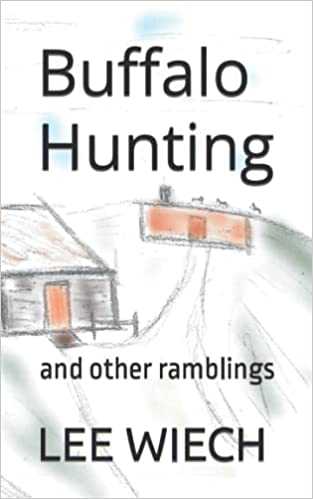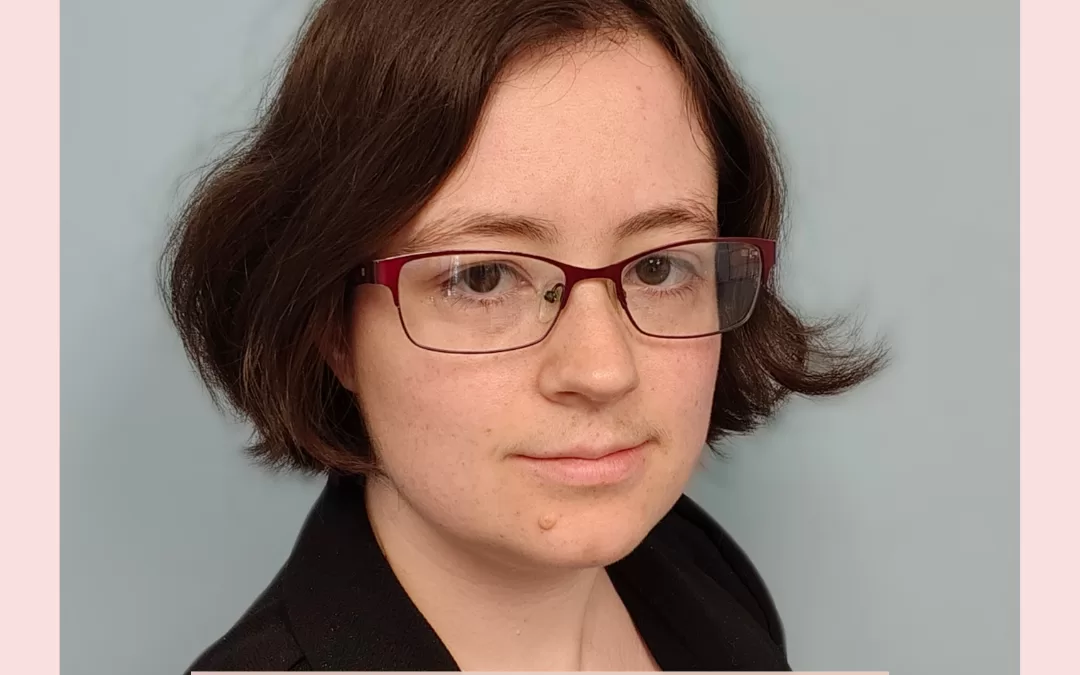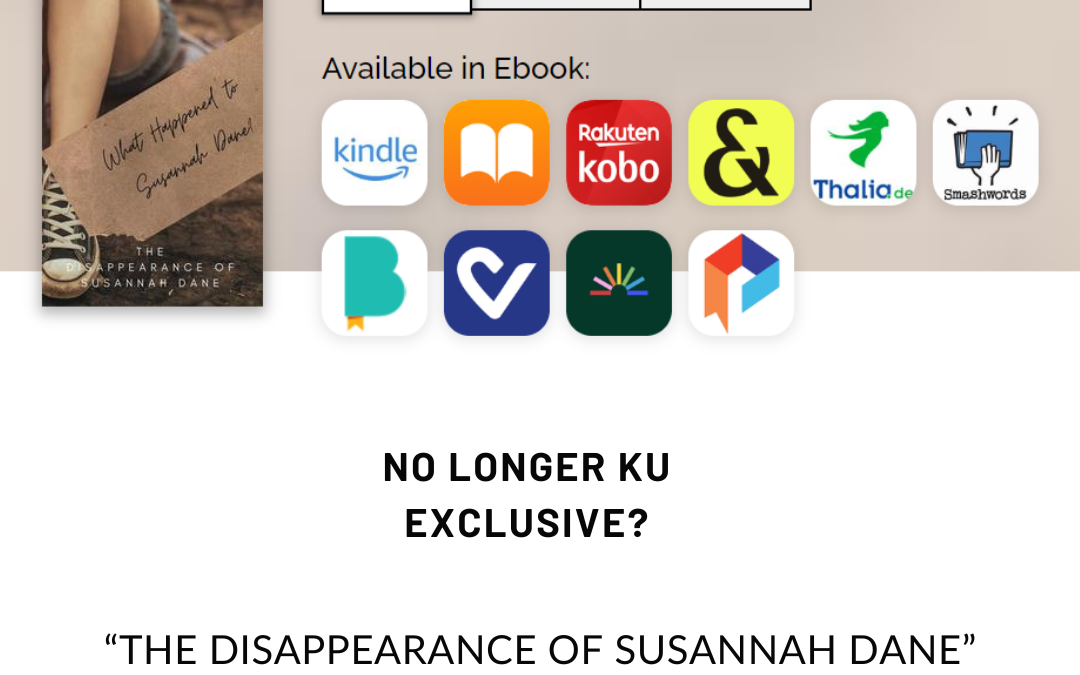Author Interview with Lee Wiech

Recently, I read the book Buffalo Hunting and Other Ramblings by Lee Wiech and posted a book review here on the blog. After reading, I asked Lee a few questions about the history of the book and the area that it takes place in.
During this interview, Wiech discusses how his early writings were “openly mocked” because of spelling errors. He discusses his struggles with grammar and what it took to overcome them and learn to work around them. I think many people take for granted their ability to spell and write easily. I have personally known multiple people that refuse to write because they worry about the errors in their writing. It is so sad to me that there are stories that may never be told because people are worried about how others will react to them. If you feel this is you, please know that professional editors are very understanding of grammar errors, and picking them apart is often an interesting and fun challenge. Don’t let spelling and grammar fears keep you from writing!
I hope that Wiech’s perspective will inspire you all that it is never too late to finish your first book. He was able to finish this book with the help of his daughter-in-law and that warms my heart to see family supporting each other in their writing.
Regarding the Discovery of the History Behind the 1847 Comanche-German Treaty in Texas:
Wiech: Discovery of these unique histories started with a not so flattering slightly off-color comment from a relative regarding Great Aunt Julia. Aunt Julia was a suffragist passing on four years before the commenter was even born. That relative loved beer and Aunt Julia was a Teetotaler. The sideways comment was. “You’re not drinking? Don’t be like your Aunt Julia.” It was that comment that put me on a journey of discovery.
Aunt Julia not only was a Suffragist, a Teetotaler, and a human rights crusader. She associated with folks like Susan B. Anthony and Frederick Douglas. Aunt Julia, after the Civil War, went to Texas to teach in the Freeman Schools. Shortly after arriving in she began lecturing quickly developing a large following of mostly freed slaves. This was not welcomed by some community leaders or civic-minded social organizations e.g. KKK.
My German heritage excited me to have such a wonderful person on my family tree. I dug deeper into Aunt Julia by doing so I discovered the massive German migration to the Republic of Texas (RoT). Purely by happenstance, I came upon articles related to the Germans settling much of RoT. Texas, being its own country at the time, was embraced by German Nobility. The German Nobles would finance boatloads of immigrants to journey across the Atlantic to arrive at Galveston.
The Germans, upon arrival, were flush with cash, livestock, and equipment. The nobles who had financed the immigrant’s journey ensured that their people had everything they needed. Typically, the immigrants received funds to last one year with the promise that they would get more the following year.
The RoT provided the Germans a land grant of approximately 3.8 million acres of Comanche territory. This grant would expire unless the Germans could establish settlements. In order to establish settlements, the Germans had to have a peace treaty with the Comanche who were at war with the RoT.
To secure the treaty the representatives from The Society for the Protection of German Immigrants in Texas (SPGI) abandoned their RoT escorts and proceeded to meet with the Comanche independently. John O. Meusebach, SPGI’s Commissioner General of Texas, negotiated a treaty with Buffalo Hump, War Chief of Penateka band of Comanche. This treaty was unique in that it is not a cessation of hostilities but an agreement to live in peace with each other and raise their families together. The treaty was signed on May 9, 1847, it has never been broken.
Eliza Asks: What first inspired you to write about the 1847 Comanche Peace Treaty?
Wiech: The uniqueness of the 1847 treaty captivated my imagination. As an American German, I carried the negative stains or stigma of German history, particularly as that history relates to racial intolerance. Raised in an intolerant and biased community it uplifted me to learn about Great Aunt Julia. However, more especially to learn of the 1847 treaty. A Golden Rose soon-to-be 175-year-old peace treaty planted by the Comanche and Germans in the Heart of Texas. These events when combined erased the stains and stigma of German racial history from me.
Eliza Asks: How long did it take you to write this book?
Wiech: Some of the poems and “…Other Ramblings” were written perhaps as much as 40 years ago. “Buffalo Hunting…” itself took nearly 4 months to get to the point where I was willing to subject myself to the possible ridicule or shaming that may come.
The concept for the book came to me after learning of the 1847 Peace Treaty. Me craving to be more like my Great Aunt, a championed civil rights, I felt it a duty to write this story. I put my concept, life experiences, and knowledge together to tell a meaningful story.
I started physically writing “Buffalo Hunting…” in September 2020. Having not written anything this extensive I submitted it to my daughter-in-law (She is an avid reader) for comment. When she got back to me I was devastated by the BAD writing habits I continued to foster. After reworking the story in December and January 2021, with her support, I was ready to release my book on February 4, 2021.
Eliza Asks: At the end of the book, you say that you have plans for a sequel. How is that going?
Wiech: The last chapter, as you mentioned in your review, reads like notes for a sequel. Yes, this was intentional for two reasons. Of course, I was planning a sequel, whoever, more especially…I hadn’t planned an ending. The February 4, 2021 release date came because I have too many unfinished projects due to COVID lockdown. I just had to finish something. By releasing “Buffalo Hunting…” I thought I would have a sense of completion, accomplishment, or finality, even with the unfinished last chapter. The sensation I expected didn’t come. I wrote a study guide, still non sense of finality. (I would like to introduce this book to schools). Now I am about 10 chapters deep into a sequel or Part II as it may be called. I’ve created some new characters expanded the role of existing characters, and have Gideon, Levy, and Izzy as adults.
Eliza Asks: You’ve been a writer for a long time. How has your approach to writing changed over the years?
Wiech: I have always enjoyed putting my thoughts on paper. As a child, adolescent, and into adulthood, I am a terrible speller. What I wrote, particularly as a child and adolescent, was openly ridiculed by other students and family because of poor spelling.
While in the military, as a Military Policeman, I was required to write investigative reports. The military provided me with the format; Who? What? When? Where? and How? I kept my words and sentences within the boundaries of my ability. I followed the military’s writing rule: K.I.S.S. (Keep it simple stupid).
After leaving the military I engaged in employment that didn’t require me to write; welding, assembly…etc.. Occasionally I would research and write for myself but never anything to share. It didn’t matter if my writing was weak, it was for me.
Often my employment would dry up due to layoffs and work stoppages. It was a cycle of unemployment. About every six months, like clockwork, I found that I was unable to support myself and my family. I did notice that it was the labor force that suffered the most when businesses cut back. I wanted to be on the other side of the layoffs. I decided to because I had taken some courses in the military, go back to college and finish my degree.
In college, I typically focused on classes that I knew I could pass. Because my college was established for working adults, normal workloads were manageable. I knew I had to test myself. I enrolled in a class that I thought would put me in a position to move out of the working class. “Writing for Managers and Professionals” I couldn’t keep up. Working full time, trying to carry a full credit load…I had to drop this class to save myself. The workload and learning curve were just too steep for me. However, I did finish college with a BA in General Liberal Studies.
To support us as I went to college I took a file clerk job with the Department of Veterans Affairs. I excelled as a file clerk then a clerk typist, I didn’t have to write anything. After graduation, I moved to Human Resources where writing was easy. A predecessor had written up many of the job descriptions I would have to rewrite…plagiarism was not a dirty word.
I have always written poems and anecdotes, but the fear of exposing my writing and myself to criticism held me back from publishing. It was not until I retired and started substitute teaching did I recognize that this fear is only natural. This realization came to me while I was encouraging students to turn in their assignments. I empathized with some of the students who were afraid to submit their papers for grading (Critical Review). Encouraging students to complete and submit their writing convinced me that I, too, must finish my work and submit it for critical review.
As a substitute teacher, I yearned to have been a full-time regular teacher and have my own classroom. I submitted my credits to a couple of colleges thinking that my BA and an additional 147 credits (Once I received my BA I never stopped going to school) would provide an advantage toward a teaching degree. Well…only in my dreams. It turned out that both universities I applied to required an additional 70 credits for a teaching degree. Using my analytical skills to evaluate my lifestyle and responsibilities I estimated that I would be near 75 years old should I pursue that program.
While I was waiting for my transcripts to be evaluated I took a couple of courses that I knew I would need. One of the courses was “Writing”. I submitted my 1st paper. The professor demolished it. Told me I had to break the habit of a Federales writing style. After 30 years of writing for the government, I had developed a Federales or run-on style. Everything was connected with; and, but, comma, semicolon. After every semicolon was a list, after every and, but, and comma was another complete thought. A sentence would be a paragraph long. A bad habit I had to break.
Now I have come full circle. When I have an idea I write it down using the military acronym K.I.S.S.






0 Comments